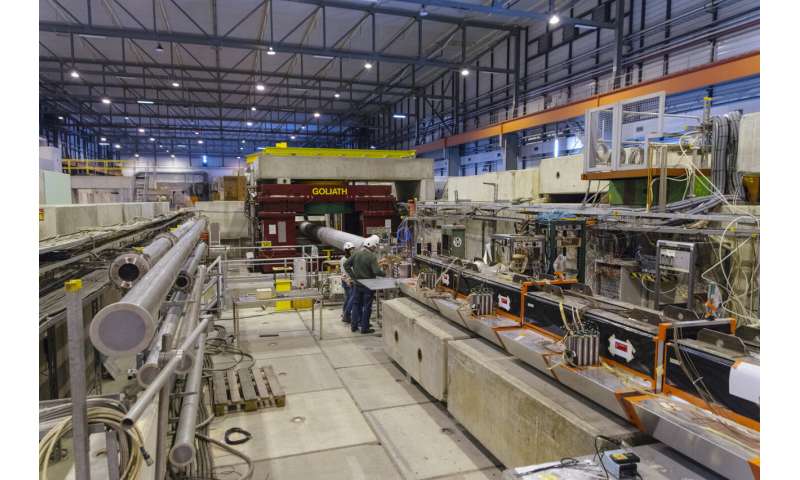Best of Last Week: Evidence of hypothetical particle, climate tipping points, dementia reduced by olive oil in mice

It was another good week for physics as a team working at CERN and led by Attila Krasznahorkay of the Atomki institute reported that the plot thickened for a hypothetical X17 particle—they found another anomaly in a nuclear transition that could be explained by the existence of the particle. Also, a team at Leiden University conducting measurements on a superconducting material showed an abrupt transition between a normal metal and a "strange" metal that they claimed put superconductivity theory under attack. And a team with members from Oxford University, the Institut d'Astrophysique and the Niels Bohr Institute found evidence for anisotropy of cosmic acceleration—they used observations of a 740 Type Ia supernovae to show that the acceleration was a relatively local effect.
And in technology news, a team at Carbonics Inc. announced the development of highly performing and wafer-scalable aligned carbon nanotube transistors—they claim they will operate at gigahertz frequencies and make it easier to integrate with CMOS technology. And a team with members from the University of Toronto and KAIST in South Korea announced that they had developed a new type of hybrid colloidal quantum dot/organic solar cell—by introducing small molecules into a CQD/organic stacked structure. Also, a team with members from Tianjin University and Beijing University of Posts and Telecommunications announced that they had developed a new model to retrieve images based on sketches.
In other news, a team of researchers at Karolinska Institutet found that multiple sclerosis could be linked to a variant of a common herpes virus—they used a new method they developed that separates between two types of a common herpes virus. Also, a panel of scientists from the University of Exeter along with associates made headlines when they claimed that nine climate tipping points are now "active"—they further suggested that the "cascade" of changes sparked by global warming could threaten the existence of human civilizations. And a team from the University of Alberta found that facial imperfections in a well-preserved Styracosaurus skull could turn paleontology assumptions on their head—it showed that researchers can no longer assume dinosaur skull fossils are symmetrical.
And finally, if you are among the millions of aging people around the world concerned about keeping your brain as sharp as possible, you might want to check out a study done by a team at the Lewis Katz School of Medicine at Temple University—they found that extra virgin olive oil staved off multiple forms of dementia in mice.
© 2019 Science X Network